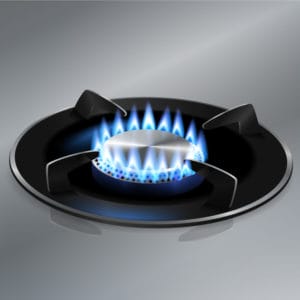Natural gas provides benefits to our economy, our homes, our environment, and our future. Explore the options below to learn the facts about natural gas.
Natural Gas is…

Affordable
Natural gas costs less to use than electricity, propane, or fuel oil for residential customers. Households that use natural gas for heating, cooking, and clothes drying spend almost $900 less per year than homes using electric appliances. Visit the American Gas Association Every-day Affordability page to learn more.
Clean
Households with natural gas appliances produce 37% less greenhouse gas emissions than households with electric appliances. Burning natural gas produces primarily heat and water vapor. Natural gas emits 56% fewer greenhouse gasses than coal for the same amount of electricity. Learn about clean natural gas at the Cleaner Energy.
Reliable
The U.S. produces more natural gas than any other nation in the world. The domestic natural gas resource base is large enough to meet America’s energy needs for generations. For more detailed information about the promise of natural gas, read the American Gas Association’s Regional Resource Assessment.

SAFE
Natural Gas is the safest form of energy, and pipelines are the safest form of energy transportation. Check out the American Gas Association’s Safe Natural Gas page to learn two simple steps you can take to make sure natural gas stays safe.
EFFICIENT
Natural gas is the more efficient fuel choice for your home. The natural gas distribution system is over 90% efficient from the well to the burner tip, compared to the electric grid which is about 30% efficient from the power plant to the plug.

COMFORTABLE
A natural gas furnace delivers heat that feels warmer than an electric heat pump. Natural gas furnace temperatures range from 120℉-140℉, while electric heat is typically delivered at 85℉-95℉.
Learn more about about Natural Gas Heating Systems
RENEWABLE
Renewable natural gas is produced from existing waste streams that include animal waste, landfills, sewage treatment plants, crop residuals, and food waste.
View/Download the Northwest Gas Association Fact Sheet to learn about the benefits of natural gas in the Pacific Northwest.
Save even more energy and money by combining natural gas with high-efficiency appliances. Learn about rebates and incentives from Intermountain Gas, plus, get other energy saving tips by visiting our Energy Efficiency page.
